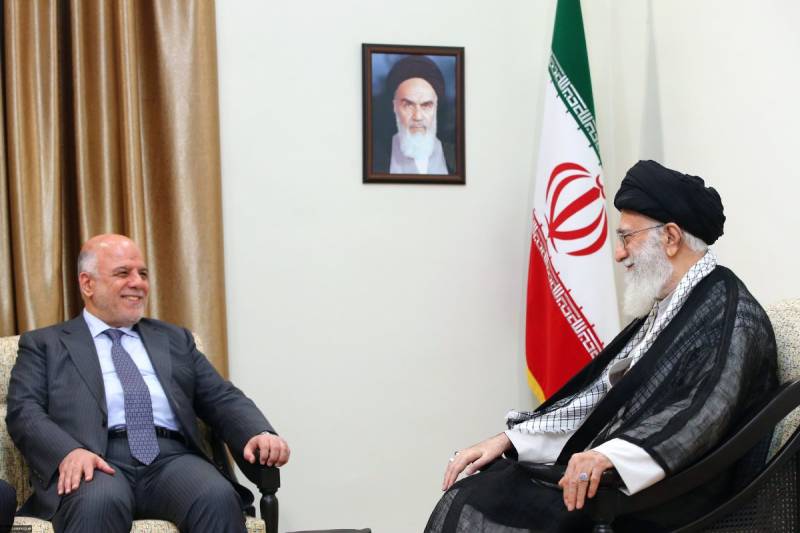Iran's Supreme Leader Ayatollah Ali Khamenei warned the Iraqi Prime Minister Haider al-Abadi on Tuesday against any measures that could weaken the Tehran-backed Shi'ite paramilitary groups, saying such actions would endanger Baghdad's stability.
At a meeting in Tehran, Khamenei said the Shi'ite militias were Iraq's main forces pushing back Sunni jihadist groups, and Baghdad should not trust the United States in the fight against the Islamic State, Iranian state media reported.
The Shi'ite militias, known as Popular Mobilisation Forces (PMF) helped Baghdad defend the country against the Islamic State militant group when Iraqi military and police divisions deserted en masse in 2014.
Since then, the Iran-backed militias, estimated to comprise more than 60,000 fighters, have continued to attack the Islamic State, also known as Daesh, which has declared a Caliphate across swathes of Iraq and Syria.
But Sunnis in areas freed from Islamic State control say the Shi'ite militias have carried out looting, abductions and murder.
Some Arab leaders in northern Iraq have asked for the PMF to be dissolved or expelled from their Sunni-majority provinces.
"The Daesh is retreating from Iraq and that is thanks to the government’s trust in these young devoted forces," Khamenei told Abadi in Tehran.
"The Americans are against Popular Forces because they want Iraq to lose its main source of strength," he added.
U.S.-backed Iraqi forces have also dislodged Islamic State from Iraqi cities the militants captured, and are about to fully capture Mosul, which used to be their de facto capital in the country.
AFTER SAUDI ARABIA
Abadi met Khamenei a day after his visit to Saudi Arabia, Iran's regional rival, in a Middle Eastern tour that will also include Kuwait.[nL8N1JH2LO]
Iraq lies on the faultline between Shi'ite Iran and the mostly Sunni Arab world. Deep-running animosity and distrust between the two sides is fueled by sectarian divides.
Abadi belongs to the Dawa party, a Shi'ite group with close ties to Iran. But he has managed relations with the Sunnis better than his predecessor, Nuri al-Maliki, and also improved Baghdad's ties with Saudi Arabia.
Khamenei asked Abadi not to trust the Americans in their fight against the Islamic State, as "they and their regional allies (Saudi Arabia) have created Daesh with their money and do not wish to fully eliminate them" in Iraq.
He said Iran was against the presence of American forces in Iraq under any circumstance including training Iraqi forces.
"We should remain vigilant of the Americans and not trust them. The Americans and their followers are against Iraq's independence, unity and identity," Khamenei said.
Khamenei also reiterated Iran's disagreement with any measure that threatened the territorial integrity of Iraq and divides the country.
Iraq's autonomous Kurdish region announced this month that it would hold a referendum on independence, a move that Baghdad's Shi'ite-led government has rejected.






